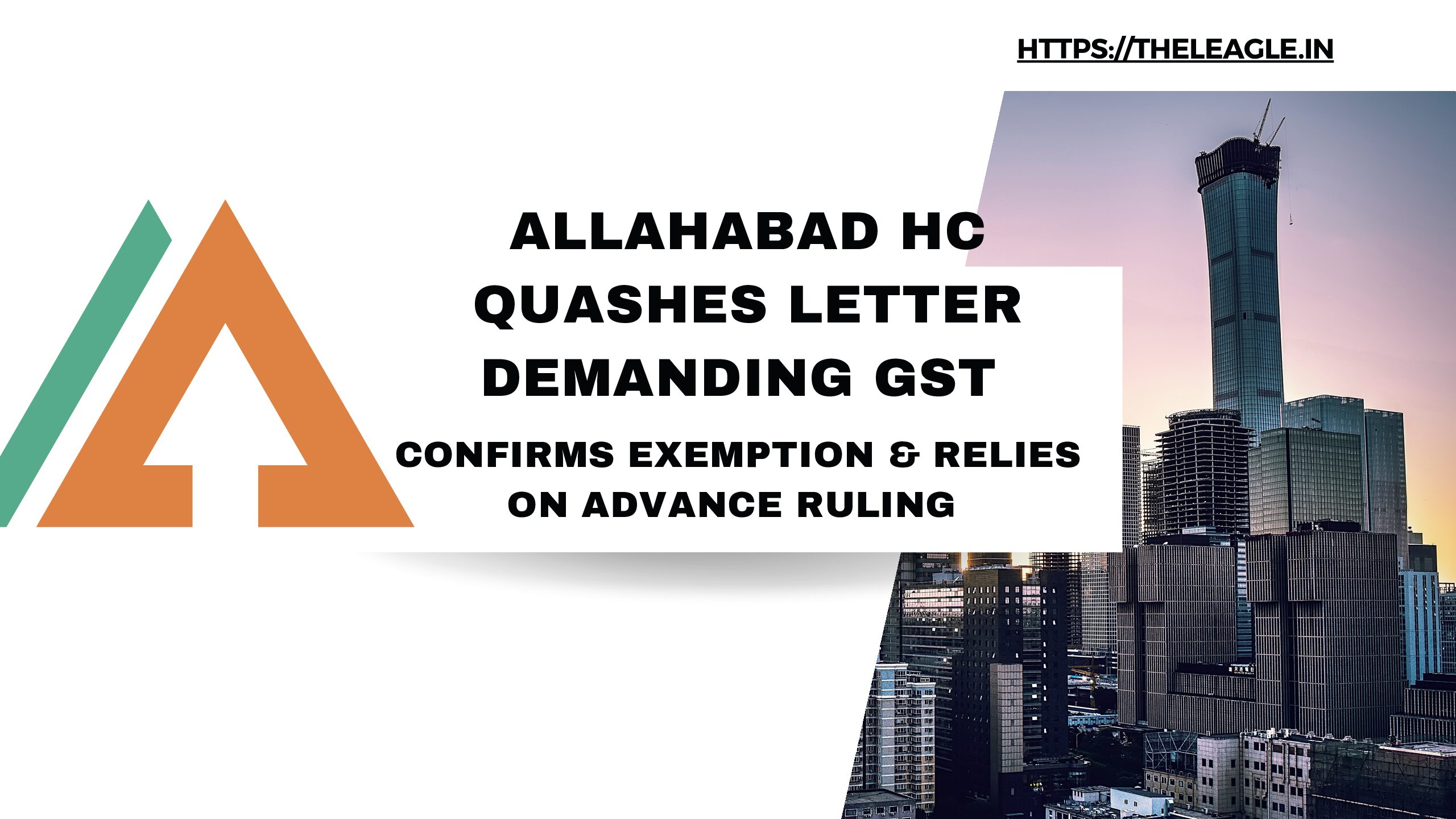Allahabad High Court recently allowed a writ petition[1] and quashed a letter issued by the Advisor to Yamuna Expressway Industrial Development Authority (YEIDA) requiring the petitioner to pay GST of 18% on the premium of Rs 3.80 crores charged by the YEIDA against an institutional plot allotted to the petitioner. The High Court inter alia observed that the YEIDA did not have the authority to demand payment of GST.
Introduction
The petitioner’s case was that it be allowed to claim tax exemption under Notification No. 12/2017 dated 28 June 2017 read with Notification No. 32/2017 dated 13 October 2017. The petitioner argued that YEIDA had doubt as to the applicability of the Notification to the case and had applied to Authority for Advance Rulings (‘AAR’) which had decided in petitioner’s favor. YEIDA, on the other hand, defended its demand of tax from the petitioner on the ground that the petitioner did not fulfil the requirement of exemption and further that its demand for tax was only provisional in nature and the petitioner could seek refund from the Revenue Department.
Allahabad HC Decides
Allahabad High Court examined the relevant entries of the Notifications wherein the exemption was claimed by the petitioner. The entries allowed exemption to upfront amounts such as premium, salami, development charges, etc. leviable in respect of the service of long term lease provided by the Development Corporations/Undertakings. The High Court observed that the plain letter of the law did not allow any doubt to arise with regard to applicability of the exemption to the impugned case. The only doubt that YEIDA had was whether the exemption was applicable to allotment of plots made for public health purposes. To this end, the High Court noted that YEIDA had approached AAR with a specific query, i.e., whether GST was chargeable on premium and lease rent on plots allotted to hospitals against lease granted for 30 years. And AAR had clarified that the GST was not applicable.
Despite the advance ruling issued by AAR which was not challenged, YEIDA issued a letter to the petitioner demanding deposit of GST @18%. It was this letter which was the subject matter of challenge.
The Allahabad High Court observed that the stand taken by YEIDA was wholly unfounded in law. And that any doubt that arose from the language of the exemption notification was resolved by AAR. Further, the High Court noted that the AAR had confirmed GST exemption subject to the conditions mentioned in the Notification. But a look at the Notification revealed that the legislature had chosen to give unconditional exemption with respect to upfront amounts paid for such plots. Thus, it concluded that:
Consequently, the letter dated 24.08.2018 issued on behalf of YEIDA is wholly unfounded in law and also in facts. Besides absence of conditions imposed by the legislature while granting exemption, no fact allegation has been made in the said communication of any specific condition having been violated by the petitioner. (para 22)
The Allahabad High Court thereby quashed the letter issued by YEIDA and ordered that any amount paid by the petitioner in pursuant of such communication be refunded.
Conclusion
The impugned case is one of those cases where one wonders why the dispute arose in the first place. YEIDA’s doubt – superfluous to begin with – as regards applicability of the exemption was clarified by AAR, but it still demanded payment of GST from the petitioner despite no claim by the Revenue Department that the transaction was exigible to GST. YEIDA’s argument that the demand for tax was ‘provisional’ and the petitioner could seek a refund missed the point completely. Why should the tax be paid if there is no liability to pay tax in the first place? Whether it will be refunded or not is immaterial.
[1] M/S Ram Kamal Healthcare Pvt Ltd v Union of India & Ors 2023:AHC: 191485-DB.
